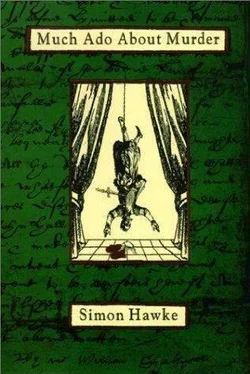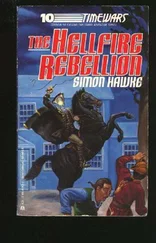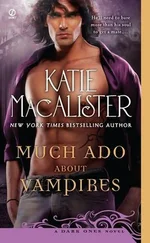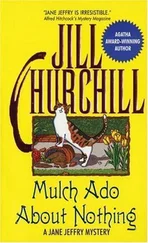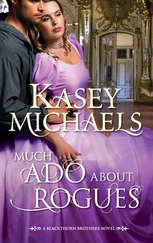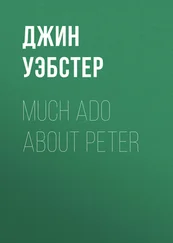Simon Hawke - Much Ado About Murder
Здесь есть возможность читать онлайн «Simon Hawke - Much Ado About Murder» весь текст электронной книги совершенно бесплатно (целиком полную версию без сокращений). В некоторых случаях можно слушать аудио, скачать через торрент в формате fb2 и присутствует краткое содержание. Жанр: Исторический детектив, на английском языке. Описание произведения, (предисловие) а так же отзывы посетителей доступны на портале библиотеки ЛибКат.
- Название:Much Ado About Murder
- Автор:
- Жанр:
- Год:неизвестен
- ISBN:нет данных
- Рейтинг книги:5 / 5. Голосов: 1
-
Избранное:Добавить в избранное
- Отзывы:
-
Ваша оценка:
- 100
- 1
- 2
- 3
- 4
- 5
Much Ado About Murder: краткое содержание, описание и аннотация
Предлагаем к чтению аннотацию, описание, краткое содержание или предисловие (зависит от того, что написал сам автор книги «Much Ado About Murder»). Если вы не нашли необходимую информацию о книге — напишите в комментариях, мы постараемся отыскать её.
Much Ado About Murder — читать онлайн бесплатно полную книгу (весь текст) целиком
Ниже представлен текст книги, разбитый по страницам. Система сохранения места последней прочитанной страницы, позволяет с удобством читать онлайн бесплатно книгу «Much Ado About Murder», без необходимости каждый раз заново искать на чём Вы остановились. Поставьте закладку, и сможете в любой момент перейти на страницу, на которой закончили чтение.
Интервал:
Закладка:
Dickens required at most a little bit of stage direction and a quick reading of the line that he was to deliver before playing the scene and doing it almost flawlessly. Shakespeare would make a small correction here, a helpful prompt there, and Dickens would seem to absorb it all like a sponge and just continue on.
“ ‘Tis like he had never even left us,” Fleming said proudly, watching from the wings with Smythe as Ben worked through a scene with Kemp and Bryan. Tuck had learned that it had been John Fleming who had housed young Dickens when he had apprenticed with the company as a juvenile and so, strictly speaking, Ben had been Fleming’s apprentice, even though all the players generally regarded the juveniles as their apprentices in common. Fleming was married, but he and his wife were childless and no longer young. They had both taken to Dickens as if he were their own. Now, he looked for all the world like a proud and beaming father as he watched his grown “son” rehearsing on the stage.
“He is very good and a quick study,” Smythe observed. “Was he this good as a juvenile?”
“Aye, he always had the gift, I thought,” Fleming replied, nodding his silver-maned head emphatically. “Methinks that he could be another Ned Alleyn if he set his mind to it.”
“Indeed?” said Smythe, with admiration. “That is high praise, coming from another player.”
Fleming nodded. “I saw it in him even when he was just a boy. He has the ability to become the role he plays, to believe it so that it no longer seems like acting, but more like being. In that respect, however, he is not at all the same as Alleyn. Ned was always Ned, at heart. He never lost sight of being Ned, because he was very fond of Ned, you see. Whenever Ned Alleyn stepped out upon the stage, ‘twas Ned Alleyn that the audience was seeing, Ned Alleyn playing a part, and often playing it brilliantly, mind you, but nevertheless, one could never quite lose sight of that.”
“What do you mean?” asked Smythe, not quite following him.
“I mean that when you see Ned Alleyn playing a part, you always remain aware that you are watching Ned Alleyn playing a part. You never quite forget that ‘tis Ned Alleyn, the great actor, you are seeing.” He purposely broke up the word ‘actor’ into two syllables, accentuating each one pointedly. “The very nature of his performance demands that you remember it.” To illustrate, Fleming took a dramatic pose, standing bolt upright with his right hand upon his chest, his chin up aristocratically, his left arm held out before him as if he were Caesar speaking to his troops. And when he spoke, his voice performed a very credible imitation of Ned Alleyn’s ringing and bombastic stage cry. “ ‘Lo!” he intoned, “ ‘tis I, the great Ned Alleyn, playing this part! Behold how brilliantly I act! Revel in the very wonder of me!”
Smythe laughed. “He would kill you if he saw that, you know.”
“Oh, I have no doubt,” Fleming replied offhandedly, in his normal voice. “He would squash me like a beetle, the great oaf. But still, it changes nothing.” He shrugged. “That is how he acts.”
“Perhaps, but if we are truly going to be honest with ourselves, John, is that not how all players act?” asked Smythe.
“Aye, most of us do, I suppose,” Fleming agreed, nonchalantly. “If, as you say, Tuck, we are truly to be honest with ourselves, then perforce we must admit that once all the trappings of our craft are stripped away, we are all nothing more than great infants in want of much attention. We live or die at the whim of the groundlings; we fatten our pride on their applause. But not Ben. Ben is something else entirely.”
“What makes him different?” Smythe asked curiously, as he watched him rehearse out on the stage.
“For Ben, ‘tis not the applause that truly matters. For him, the play’s the thing. And not really the play so much as the playing. In that, I perceive he has not changed.”
Smythe frowned. “ ‘Twould seem to me that playing matters neither more nor less to him than to any of the others. Or do my eyes see things less keenly than do yours?”
Fleming smiled. “The flaw lies not so much in your observation as in your knowledge, Tuck. I have known Ben since he was but a boy, whilst you have only met him recently. And the truth is that there is rather more to Ben than the eye can plainly see. Ben did not much like his life, and so he went off to make himself another. And now he has come back, because the life he went in search of doubtless proved a disappointment, and so once again he seeks to make himself another.”
Fondness seemed to mingle with a sort of wistful regret in John Fleming’s exression as he watched Ben Dickens on the stage. He sighed and continued while Smythe listened with great interest.
“There is a sort of magic to our Ben,” Fleming said. “For all that he is a grown man now, there is still the child within him, a fey child, a changling who possesses the ability to believe in things the way only a child can believe. I first saw it within him when he came to us as an apprentice player and I see it still. When you and I go out upon that stage, Tuck, we take the parts we are to play and play them as best as we are able, do we not?”
“Well, I fear my best is not to be compared with yours on equal footing,” Smythe said, somewhat sheepishly.
“Nevertheless,” the older man replied, gently patting him on the shoulder, “you put forth your best effort each and every time, for which you are to be commended, and you strive always to improve. But that is not the point. Tis this: when the rest of us step out upon the stage, we are but playing parts, pretending to be something we are not. Yet when Ben steps out upon the stage, what he does is rather different. He becomes something he is not. That is his gift, you see, his special magic, and perhaps, his curse, as well. He has the ability to so completely throw himself into a role that he becomes that role during the time he plays it… for howsoever long that time may be. I first saw him start to do it on the stage and I did marvel at it. I thought that he had the potential to be better than merely good; I thought he could be great. And I still think so. But when I later saw him do the same thing in his life, offstage, then I became truly concerned for him. It frightened me.”
“In what way were you frightened?” Smythe asked.
“Do you recall those two thoroughly unpleasant ruffians who came into the Toad and Badger that day when Ben returned?”
“Aye,” Smythe said, with a grimace. “Jack Darnley and Bruce McEnery were their names.”
“They are the very ones,” said Fleming, nodding emphatically. “After Ben had been with us for a few years, he met those two somehow. I do not know where precisely, perhaps here at the theatre, perhaps in town somewhere… in truth, it matters not. What matters is that he fell in with them and began to spend his free time roaming the streets with that unruly lot of theirs — ”
“The Steady Boys,” said Smythe.
“Aye, steady on the road to ruin, if you ask me. I watched him begin to change before my own two eyes, become another Ben… a Ben that I no longer knew, in many ways. And yet, in other respects, he still seemed much the same. When he was with us, he was the Ben that we had always known and loved. But then there were times when it seemed as if he were a changling, as if the faeries came whilst he had slept and stolen him away, leaving in his place some evil creature that merely had his aspect. It puzzled me at first, until at last I understood what was afoot. It always used to happen when he was returning from keeping company with those troublesome apprentices. There was something about those roaring boys that very much appealed to Ben, you see.”
Читать дальшеИнтервал:
Закладка:
Похожие книги на «Much Ado About Murder»
Представляем Вашему вниманию похожие книги на «Much Ado About Murder» списком для выбора. Мы отобрали схожую по названию и смыслу литературу в надежде предоставить читателям больше вариантов отыскать новые, интересные, ещё непрочитанные произведения.
Обсуждение, отзывы о книге «Much Ado About Murder» и просто собственные мнения читателей. Оставьте ваши комментарии, напишите, что Вы думаете о произведении, его смысле или главных героях. Укажите что конкретно понравилось, а что нет, и почему Вы так считаете.
